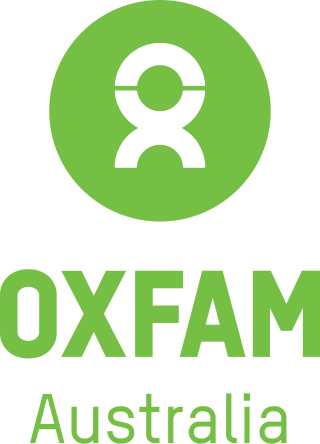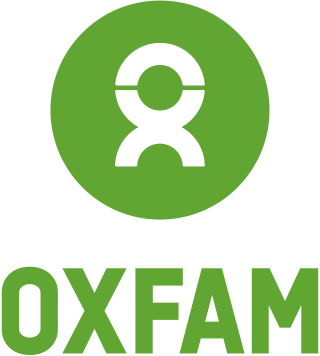The General Agreement on Tariffs and Trade (GATT) is a legal agreement between many countries, whose overall purpose was to promote international trade by reducing or eliminating trade barriers such as tariffs or quotas. According to its preamble, its purpose was the "substantial reduction of tariffs and other trade barriers and the elimination of preferences, on a reciprocal and mutually advantageous basis."

Intellectual property (IP) is a category of property that includes intangible creations of the human intellect. There are many types of intellectual property, and some countries recognize more than others. The best-known types are patents, copyrights, trademarks, and trade secrets. The modern concept of intellectual property developed in England in the 17th and 18th centuries. The term "intellectual property" began to be used in the 19th century, though it was not until the late 20th century that intellectual property became commonplace in most of the world's legal systems.

The World Trade Organization (WTO) is an intergovernmental organization headquartered in Geneva, Switzerland that regulates and facilitates international trade. Governments use the organization to establish, revise, and enforce the rules that govern international trade in cooperation with the United Nations System. The WTO is the world's largest international economic organization, with 164 member states representing over 98% of global trade and global GDP.

The Free Trade Area of the Americas (FTAA) was a proposed agreement to eliminate or reduce the trade barriers among all countries in the Americas, excluding Cuba. Negotiations to establish the FTAA ended in failure, however, with all parties unable to reach an agreement by the 2005 deadline they had set for themselves.

Trade justice is a campaign by non-governmental organisations, plus efforts by other actors, to change the rules and practices of world trade in order to promote fairness. These organizations include consumer groups, trade unions, faith groups, aid agencies and environmental groups.

International trade law includes the appropriate rules and customs for handling trade between countries. However, it is also used in legal writings as trade between private sectors. This branch of law is now an independent field of study as most governments have become part of the world trade, as members of the World Trade Organization (WTO). Since the transaction between private sectors of different countries is an important part of the WTO activities, this latter branch of law is now part of the academic works and is under study in many universities across the world.

The Fair Trade Towns campaign is the result of a grass-roots citizens movement that started in the UK in 2001. It allows citizens to get together in order to self-proclaim their town as a region that complies with a few general Fair Trade criteria, that can be adapted from country to country but which retain their main elements.
The Doha Development Round or Doha Development Agenda (DDA) is the trade-negotiation round of the World Trade Organization (WTO) which commenced in November 2001 under then director-general Mike Moore. Its objective was to lower trade barriers around the world, and thus facilitate increased global trade.
The Sixth Ministerial Conference of the World Trade Organization, also known as the WTO Hong Kong Ministerial Conference and abbreviated as MC6, was held at the Hong Kong Convention and Exhibition Centre, Wan Chai, Hong Kong from 13 to 18 December 2005. Representatives from 148 countries were expected to attend the event, as well as over 10,000 protesters led by the Hong Kong People’s Alliance on WTO and made up of largely South Korean farmers. The conference approved a declaration which many participants described as marking "significant progress";. However, due to violent protesters, police officers were deployed with batons, riot gas, and other non-lethal weapons. Around 910 people were arrested. Of these, 14 were charged, but none were convicted.

Oxfam Australia is an Australian, independent, charity, not-for-profit, secular, community-based aid and development organization, and is an affiliate of the Oxfam International Confederation. Oxfam Australia's work is divided into four broad categories covering climate justice, Economic Justice, Gender Justice and First Peoples Justice as well as Humanitarian response. They believe that poverty in the 21st century is less a problem of scarcity but the result of how resources, opportunities, and protections are distributed and wielded.
The Agreement on Agriculture (AoA) is an international treaty of the World Trade Organization. It was negotiated during the Uruguay Round of the General Agreement on Tariffs and Trade, and entered into force with the establishment of the WTO on January 1, 1995.
The Cake Sale was a collective of mostly Irish musical artists, with Swedish singer-songwriter Nina Persson of the Cardigans and Australian musician Nick Seymour of Crowded House.
This is a timeline of the World Trade Organization (WTO).

Since its creation in 1995, the World Trade Organization (WTO) has worked to maintain and develop international trade. As one of the largest international economic organizations, it has strong influence and control over trading rules and agreements, and thus has the ability to affect a country's economy immensely. The WTO policies aim to balance tariffs and other forms of economic protection with a trade liberalization policy, and to "ensure that trade flows as smoothly, predictably and freely as possible". Indeed, the WTO claims that its actions "cut living costs and raise standards, stimulate economic growth and development, help countries develop, [and] give the weak a stronger voice." Statistically speaking, global trade has consistently grown between one and six percent per annum over the past decade, and US$38.8 billion were allocated to Aid for Trade in 2016.
The Brazil–United States cotton dispute was a World Trade Organization dispute settlement case (DS267) on the issue of unfair subsidies on cotton. In 2002, Brazil—a major cotton export competitor—expressed its growing concerns about United States cotton subsidies by initiating a WTO dispute settlement case against certain features of the U.S. cotton program. On March 18, 2003, a Panel was established to adjudicate the dispute. Argentina, Canada, China, Taiwan, the European Communities, India, Pakistan, and Venezuela participated as third parties. Focusing on six specific claims relating to US payment programmes, Brazil argued that the US had failed to abide by its commitments in the Uruguay Round Agreement on Agriculture (AoA) and the Agreement on Subsidies and Countervailing Measures (SCM). On September 8, 2004, a WTO dispute settlement (DS) panel ruled against the United States on several key issues in case.

The Agreement on Trade-Related Aspects of Intellectual Property Rights (TRIPS) is an international legal agreement between all the member nations of the World Trade Organization (WTO). It establishes minimum standards for the regulation by national governments of different forms of intellectual property (IP) as applied to nationals of other WTO member nations. TRIPS was negotiated at the end of the Uruguay Round of the General Agreement on Tariffs and Trade (GATT) between 1989 and 1990 and is administered by the WTO.

Oxfam is a British-founded confederation of 21 independent non-governmental organizations NGOs, focusing on the alleviation of global poverty, founded in 1995 and led by Oxfam International. It began as the Oxford Committee for Famine Relief in Oxford, UK, in 1942, to alleviate World War Two related hunger and continued in the aftermath of the war. By 1970, Oxfam had established an international presence, in India, Australia, Denmark, and North America.

The Cake Sale is a 2006 charity album involving the collected works of a group of Irish and international musicians calling themselves The Cake Sale. The album features artists such as Snow Patrol's Gary Lightbody, Lisa Hannigan, Damien Rice, Josh Ritter, Glen Hansard, Neil Hannon, members of Bell X1 and Nina Persson of The Cardigans. These were brought together by Brian Crosby, a member of Bell X1 at the time. The album had sold 35,000 copies and raised over €250,000 in Ireland by November 2007. That month it was announced that the album would be released globally to increase donations. It peaked at #3 in the Irish Albums Chart, having spent eighteen weeks there.

Iran is a member of the WIPO since 2001 and has acceded to several WIPO intellectual property treaties. Iran joined the Convention for the Protection of Industrial Property in 1959. In December 2003 Iran became a party to the Madrid Agreement and the Madrid Protocol for the International Registration of Marks. In 2005 Iran joined the Lisbon Agreement for the Protection of Appellations of Origin and their International Registration, which ensures the protection of geographical names associated with products. As at February 2008 Iran had yet to accede to The Hague Agreement for the Protection of Industrial Designs.
The TRIPS Agreement waiver is a joint intervention communication by South Africa and India to the TRIPS council of the World Trade Organization (WTO) on 2 October 2020.











